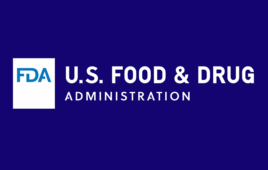As we readied our first issue covering the hottest trends in the medical device industry, I was lucky enough to sit down with Cohera Medical CEO Patrick Daly at our DeviceTalks Research Triangle event. Our chat brought to mind a trend we don’t hear much about but that’s certainly under way: The FDA’s vastly improved track record when it comes to reviewing medical devices.
The FDA’s own numbers reveal the shift: The time to decision for pre-market approvals improved 20 percent, to an all-time low of 209 days, during the first quarter of 2016; the time to decision for510(k) clearances over that span fell 14%to 109 days, its lowest mark in a decade.
Cohera’s TissuGlu is the first product ever approved by the agency to seal tissue inside the body, and its next generation Sylys sealant was the first product the FDA selected for its new Expedited Access Program.
Daly surprised me when, in describing his 10-year odyssey to FDA approval for TissueGlu, he gave great credit to the federal safety watchdog, singling out a pair of leaders at the Center for Devices & Radiological Health.
“I do want to take a minute and really compliment Dr. Jeff Shuren and Dr. Bill Maisel,” Daly told me. “I give them a lot of credit. They are really, really trying to change the culture there.
“I interact with the FDA almost weekly. I will tell you that you have two great champions in those two,” he said.
 Daly said one thing he learned in his dealings with federal safety watchdog is not to be shy about explaining your product to FDA reviewers.
Daly said one thing he learned in his dealings with federal safety watchdog is not to be shy about explaining your product to FDA reviewers.
“You’ve got to be really committed to providing that guidance to FDA. This is where I go back and give Dr. Maisel a lot of credit. We built a relationship though this process, and we’re pretty forthright,” he explained. “I think some companies tend to defer too much. They say, ‘Well, FDA will get mad at us.’ I’m here to tell you, if you don’t stick up for yourself and point out the errors in the FDA, no one else will.”
Brad Perriello is the executive editor of Medical Design & Outsourcing.


